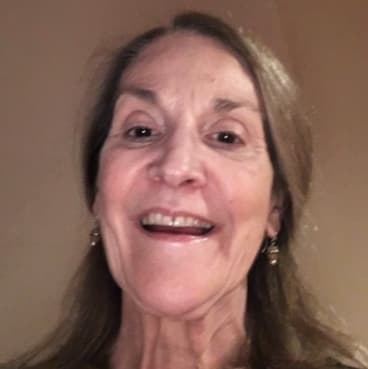Advertisement
SpeakEasy Stage Gives Eloquent Voice To Andre's Mother In 'Mothers And Sons'
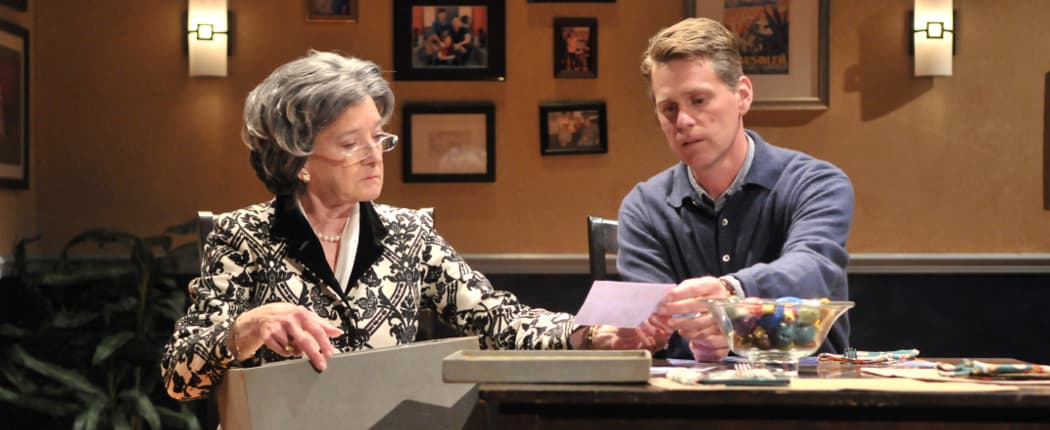
“Mothers and Sons” is not Terrence McNally’s first date with Andre’s mom. The dramatist’s Tony-nominated play, which debuted at Pennsylvania's Bucks County Playhouse in 2013 and is seen here in a moving production by SpeakEasy Stage Company (through June 6), is a sequel to his 1988 “Andre’s Mother,” in which the title character barely speaks, the piece consisting in the main of a bitter screed launched against her by her son's bereaved lover, Cal. It is now 20 years later, and the still enraged and bereft Dallas matron of the earlier play has shown up unannounced at Cal’s upscale Manhattan apartment — where her long-ago adversary and partner in grief now lives happily with his younger husband and their precocious six-year-old son. Not exactly the schadenfreude a mad woman might hope for.
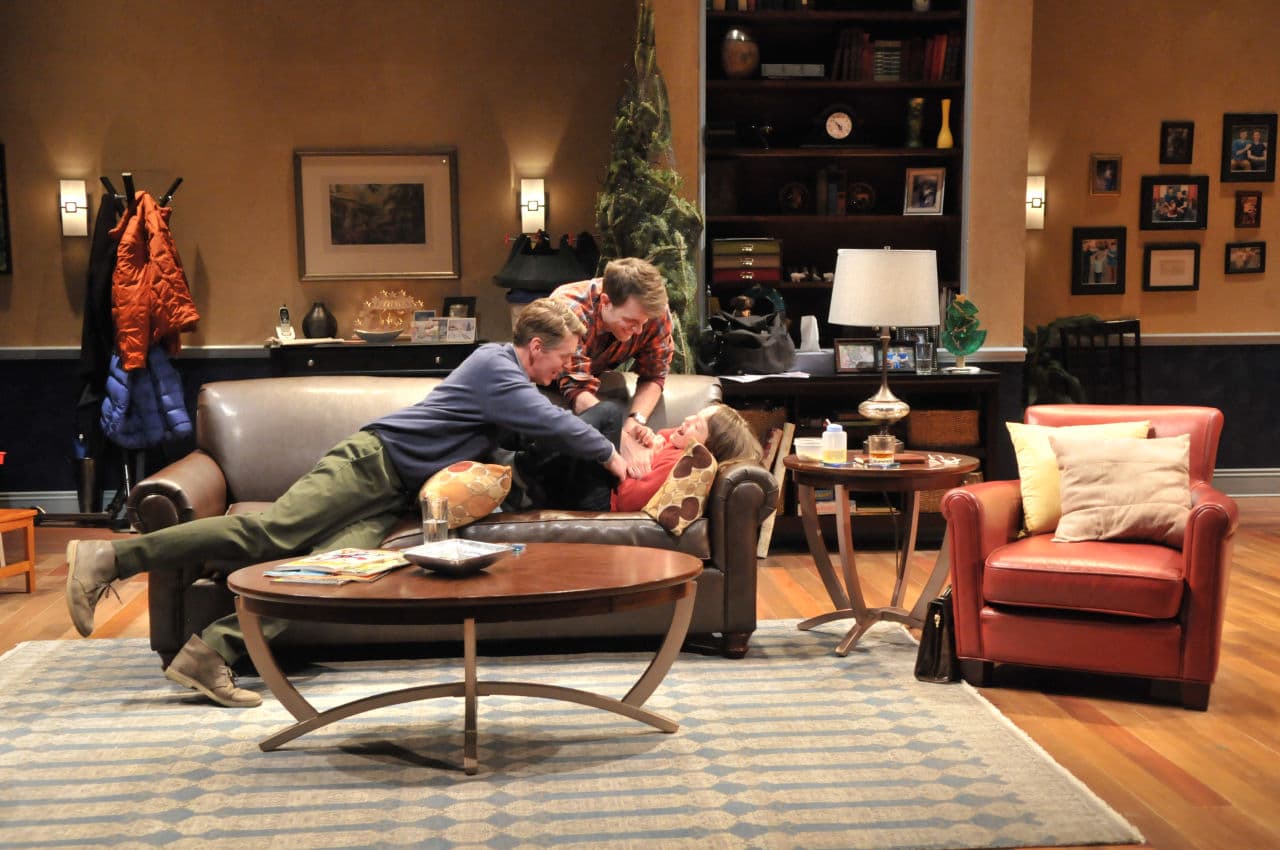
When “Mothers and Sons” opened on Broadway in 2014, the New York Times’ Ben Brantley described it as “a debate play with fraught emotional underpinnings.” In fact, it’s a pretty one-sided “debate” since Cal is an articulate, sensitive soul and Andre’s mother, now called Katharine, remains a pretzel-twist of unabated prejudice (homosexuality “sickens” her) and rigid self-loathing. But Brantley is correct that there is a lot of speechmaking in the play (the first on Broadway to portray a legally married gay couple), meant to reflect the 76-year-old playwright’s shock and awe at the positive changes for gays in America since the height of the AIDS crisis and his fierce resolve that “What Happened to Gay Men in the Final Decades of the 20th Century” not be reduced to “a chapter in a history book, then a paragraph, then a footnote.”
But if the work has an obvious agenda (and some old bones to pick), it is also the deeply felt work of a witty, eloquent pro on a roll. (“Mothers and Sons” lasted only a respectable few months on Broadway, but McNally’s “It’s Only a Play,” from 1982, is winding down a star-studded revival there, and the musical based on Friedrich Dürrenmatt’s “The Visit,” for which McNally wrote the book, is on the street too.) And it is the truth of the emotion, welling up from under the play’s argument, that sells it — especially since the chief purveyor, at SpeakEasy Stage, is the magnificent Nancy E. Carroll, whose gray-helmeted Katharine is a model of modulated ire and contained misery. A prickly fish out of Texas water, the character (based in part on the playwright’s mother) both embraces and despises the gushy conservative culture that McNally, like Andre, fled as a youth.
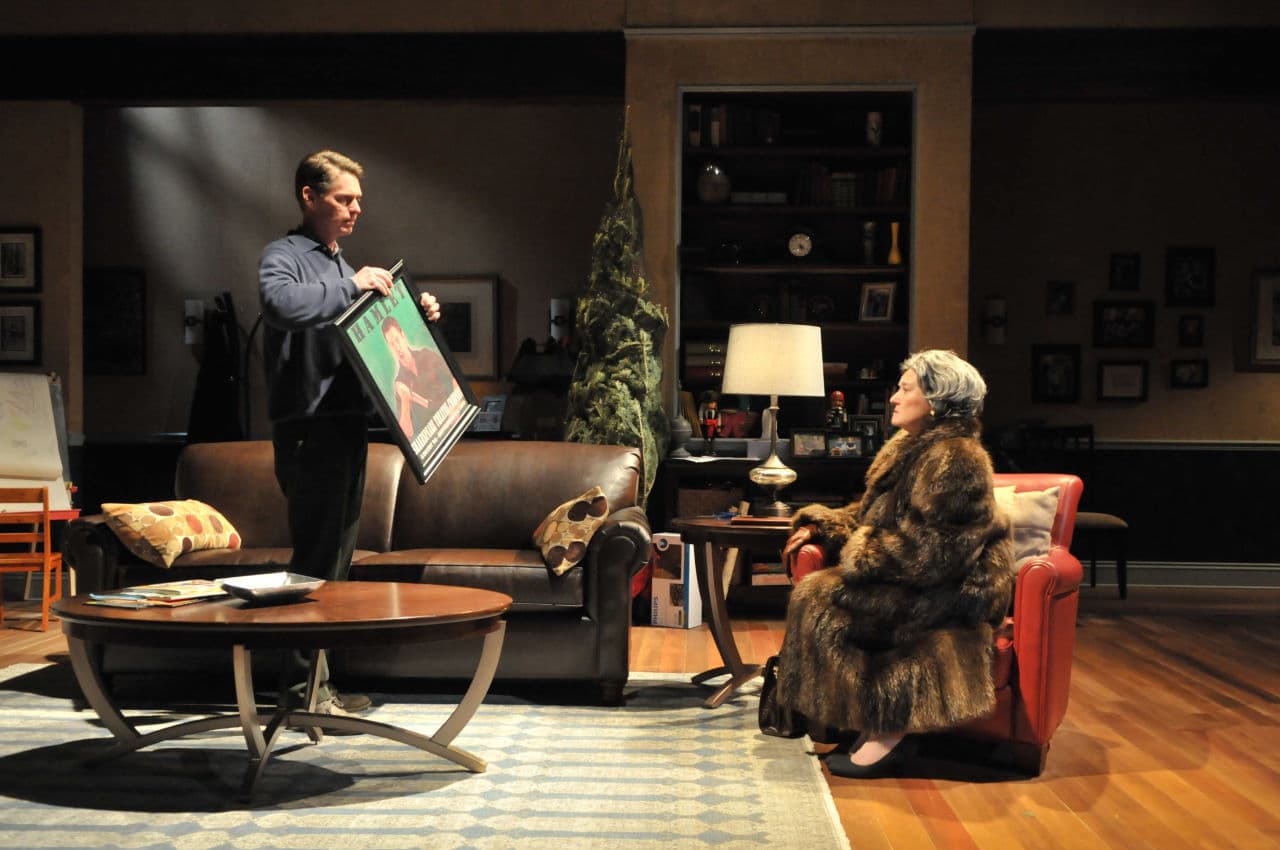
At the play’s opening, Katharine and Cal face us stiffly, admiring the view from the latter’s nicely appointed Central Park West apartment (the impressive set is by Erik D. Diaz). The apartment is poised for Christmas, with a crate full of holiday tchotchkes and a trussed-up tree awaiting decoration, and the view includes the leafy locale of Andre’s memorial, 20 years earlier, now as chilly and frozen as Katharine in her stiff coif and mink coat.
As in the earlier play, Cal talks, delivering a generous if nervous monologue about his current, happy New York life, replete with home, husband and child. Eventually, though, Katharine opens her mouth, first to spit clipped monosyllables, eventually to spew unhappiness, venom and confession. But in Carroll’s anguished, armored performance, even the spewing is artfully controlled. And next to her, Michael Kaye ably conveys how Cal’s current contentment and mourning for his former love exist comfortably inside the same skin.
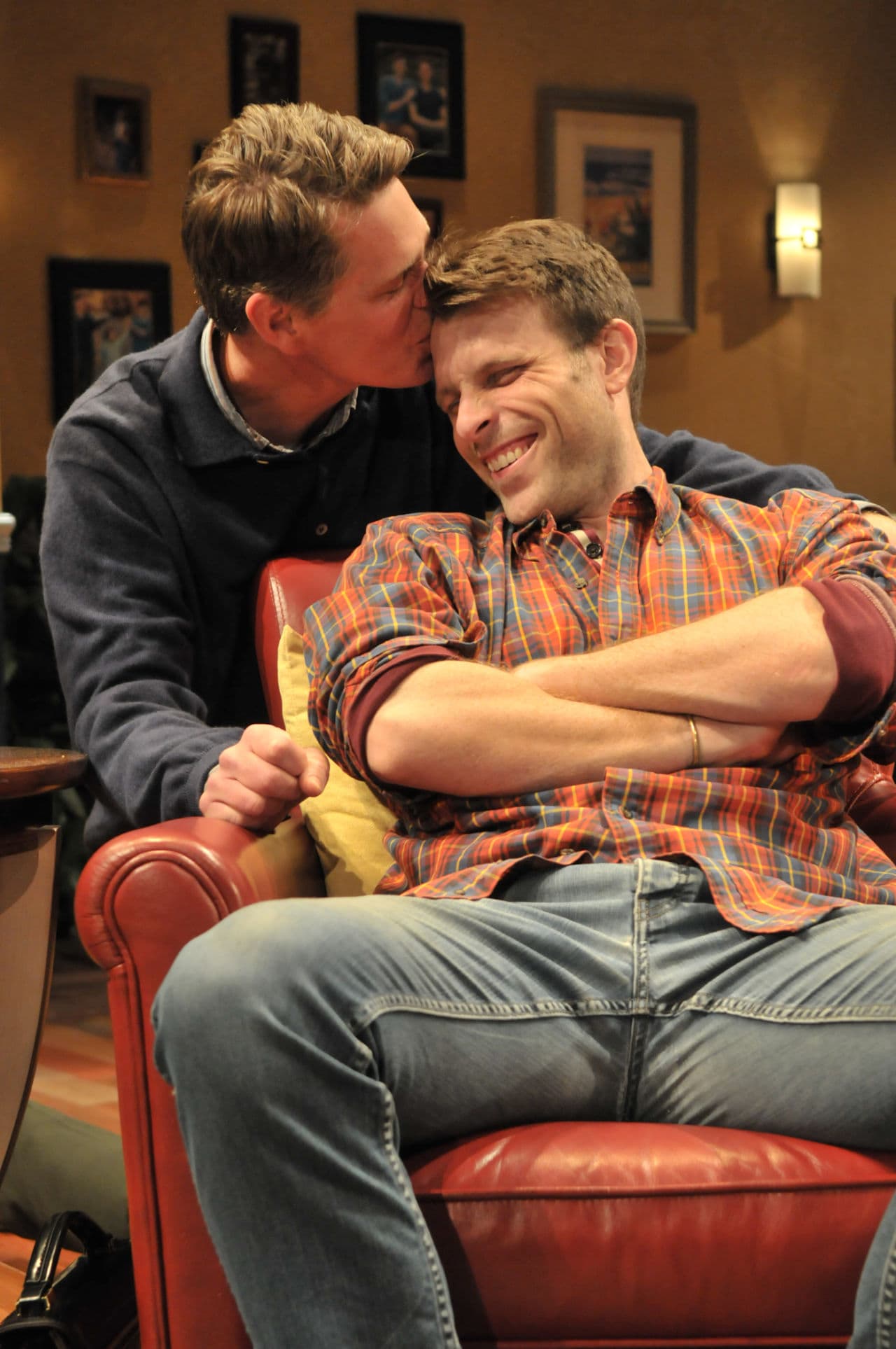
Eventually, Cal gets Katharine to surrender the coat if not the field, and the two are joined by Cal’s bright-eyed and bushy-tailed younger husband, Will (a boyish but solid Nile Hawver), and their even brighter-eyed and more bushy-tailed son, Bud (who is supposed to be six but who, in chipper Liam Lurker, seems older). Thus, in McNally’s plan, we are confronting four generations (Katharine is in her mid-70s, Cal is about 50, Will is 15 years younger and Bud’s a tot) whose attitudes toward and experience of sexual orientation have been or will be differently formed. This may be overly schematic and the kid is perhaps too adorably pert. But McNally proves himself (again) a master of urbane dialogue, easy yet pointed, and the play’s deep sentiments resonate within the sometimes casual, sometimes combative conversation.
Moreover, artistic director Paul Daigneault’s production for SpeakEasy Stage hits just the right balance between confident intimacy and grandstanding. (As a married, gay father, the director’s investment in the material is both palpable and profitable.) Kaye’s Cal and Hawver’s Will come across as a passionate, companionable couple; yet Kaye’s character’s unassuaged grief, brought to the surface by this surprise visit, seldom wholly leaves his face. By contrast, Carroll’s Katharine, sharp-edged and quick-witted even in her suffering, keeps her hurt so savagely shuttered that it’s almost unbearable. The moment when she and Cal finally touch, across the buffer of the mink, brought me to tears. And even though I could spot the play’s contrivances, I felt it had earned the tears.
Carolyn Clay was for many years the theater editor and chief drama critic for the Boston Phoenix. She is a past winner of the George Jean Nathan Award for Dramatic Criticism.
